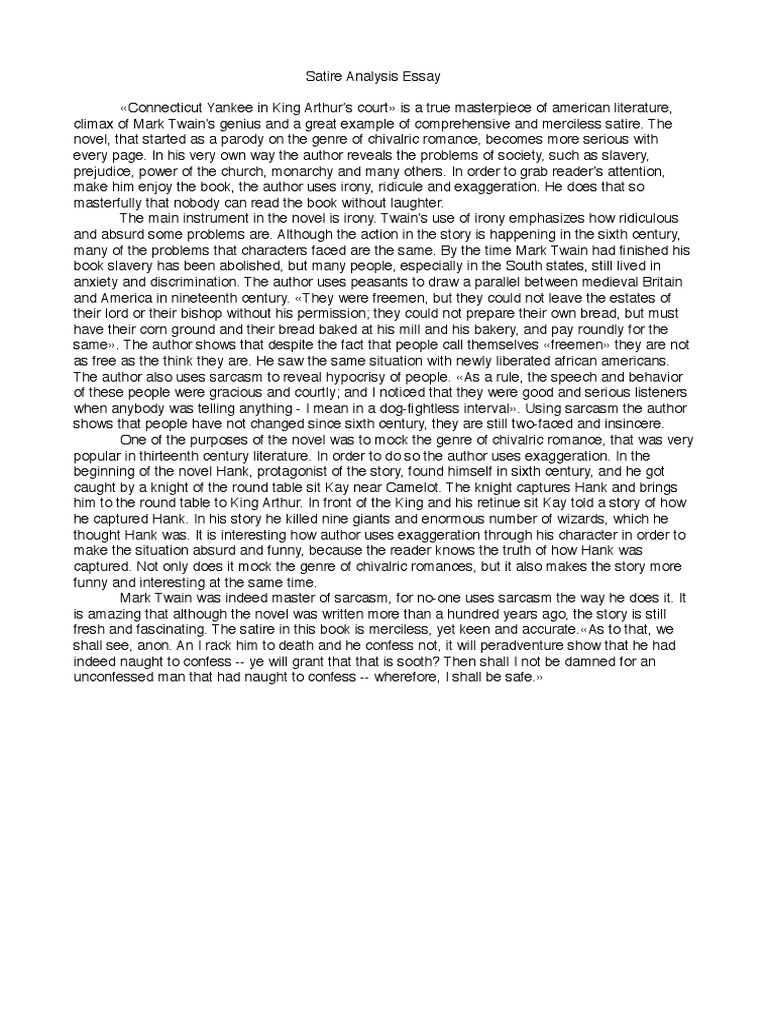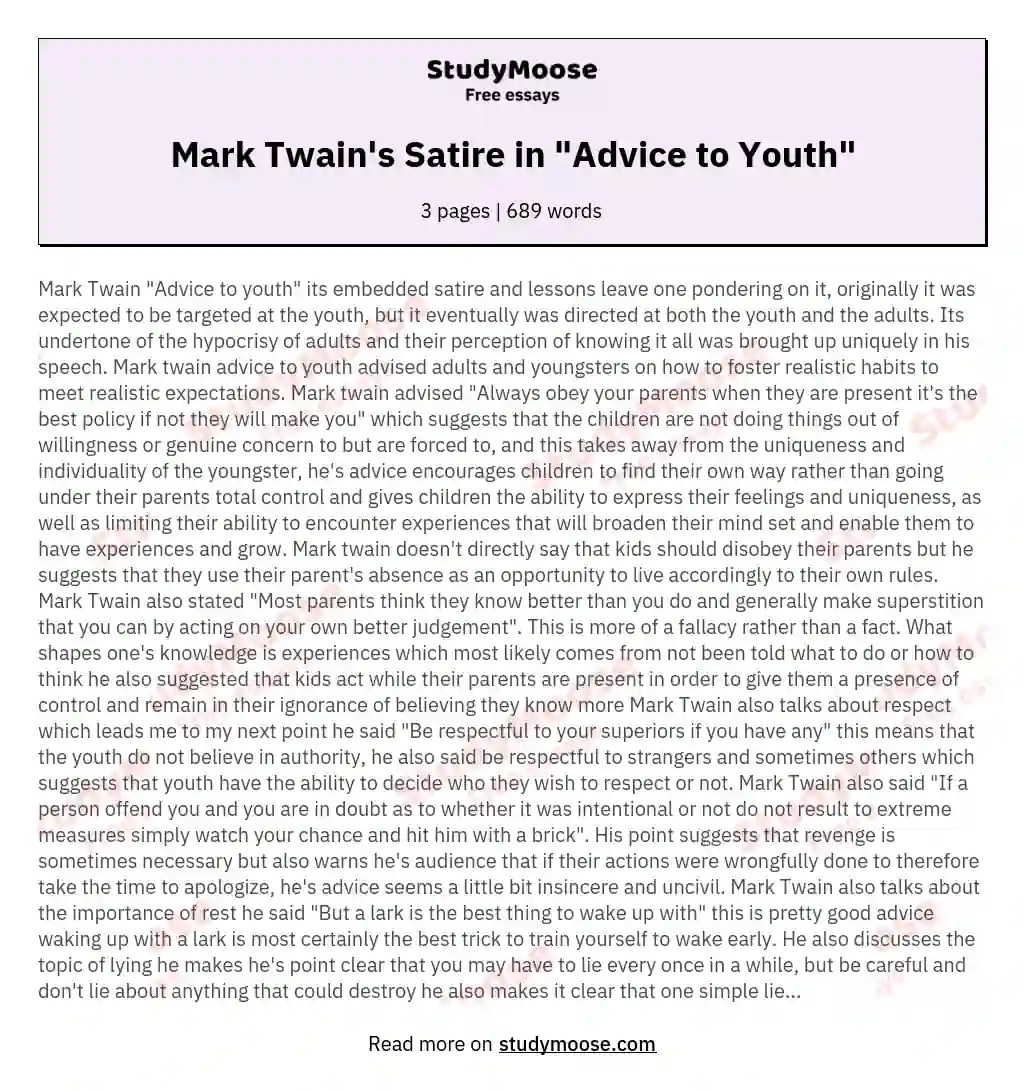Reference




OpenAI's Answer
Mark Twain's satire often critiqued the notion of bringing "civilization" to other lands, illustrating the hypocrisy and flaws in the moral and intellectual superiority assumed by colonizers. Twain was known for his anti-imperialist stance, where he highlighted the absurdity and moral contradictions of colonial intentions disguised as civilizing missions. In his writings, Twain showcased the destructiveness of imperialism and critiqued the Western claims of moral superiority over colonized peoples.
For example, in works such as The Adventures of Huckleberry Finn, Twain used satire to critique the so-called civilized society's morals and ethics. The narrative itself underscores the failures of the so-called "civilizing" forces, juxtaposing the innocence and natural morality of characters like Huck and Jim against the corrupted society that claims civilization.
Twain’s critique further extended to the American imperialism of his time. He participated actively in the anti-imperialist discourse, pointing out how the acts of imperialism were often justified by a misguided sense of bringing progress and enlightenment to the 'backward' places, while in reality, they were acts of exploitation and domination. His works carry underlying messages of skepticism towards organized religion and government institutions as agents of 'civilization' that often perpetrated more harm than good.
For more insights, you can reference Twain's works and analyses, such as through articles on JSTOR or Cambridge, which discuss his views and how they were reflected in his satire (Cambridge Journal).
